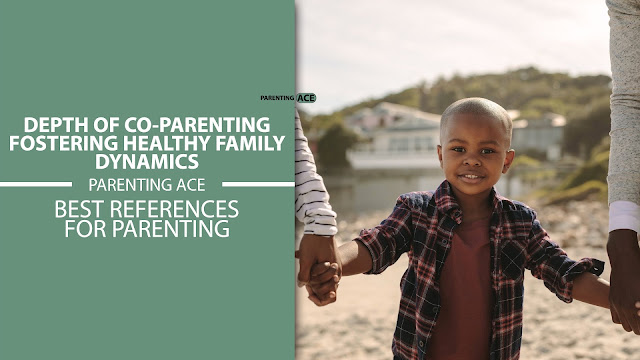Understanding the Depth of Co-Parenting: Nurturing Healthy Family Dynamics
Embarking on the journey of co-parenting marks a significant chapter in the lives of separated or divorced parents and their children. In this blog post, we delve into the profound significance of co-parenting, exploring its essence, challenges, and transformative potential. As we navigate the complexities of co-parenting dynamics, we unravel the importance of fostering cooperation, communication, and mutual respect to nurture strong family bonds and prioritize the well-being of the children above all else. Join us as we embark on this enlightening journey of co-parenting, striving to create harmonious family relationships and a supportive environment for the growth and development of our children.
 |
| Depth of Co-Parenting: Fostering Healthy Family Dynamics |
What Does Co-Parenting Mean To You?
Co-parenting, a term that has gained prominence in contemporary family discourse, holds profound significance in shaping family dynamics and children's well-being. As experts in psychology and family dynamics, we delve into the depths of co-parenting, exploring its essence, challenges, and transformative potential.
Exploring the Essence of Co-Parenting
Co-parenting refers to the collaborative effort between separated or divorced parents to raise their children together, despite no longer being in a romantic relationship. It embodies a commitment to prioritize the needs and best interests of the children above personal conflicts or differences. At its core, co-parenting fosters an environment of cooperation, communication, and mutual respect between parents, laying the foundation for healthy family relationships.
Understanding the Dynamics
Effective co-parenting involves a delicate balance of responsibilities, communication, and decision-making between parents. It requires setting aside past grievances and focusing on the present and future well-being of the children. Successful co-parenting entails clear and consistent communication, shared parenting goals, and a willingness to compromise for the sake of the children's welfare. Moreover, flexibility and adaptability are key as co-parenting arrangements may need adjustments over time to accommodate the changing needs of both parents and children.
Challenges and Roadblocks
Despite its potential benefits, co-parenting is not without its challenges. Conflict, differing parenting styles, and unresolved emotions from the past can impede effective co-parenting efforts. Additionally, logistical issues such as scheduling conflicts and financial responsibilities may arise, adding further complexity to the co-parenting dynamic. Navigating these challenges requires patience, empathy, and a commitment to conflict resolution through mediation or counseling.
The Transformative Potential
When executed effectively, co-parenting can have a transformative impact on children's emotional and psychological well-being. Research consistently highlights the positive outcomes associated with healthy co-parenting, including higher self-esteem, better social skills, and lower levels of stress and anxiety among children. Moreover, children raised in environments where co-parents demonstrate cooperation and respect are more likely to develop secure attachment styles and healthy relationships in adulthood.
In conclusion, co-parenting embodies a collaborative approach to parenting that prioritizes the needs of the children above all else. As experts in psychology and family dynamics, we recognize the profound impact of co-parenting on children's development and family relationships. By fostering open communication, mutual respect, and a shared commitment to the children's well-being, co-parenting has the potential to nurture healthy family dynamics and lay the groundwork for a brighter future for all involved.




